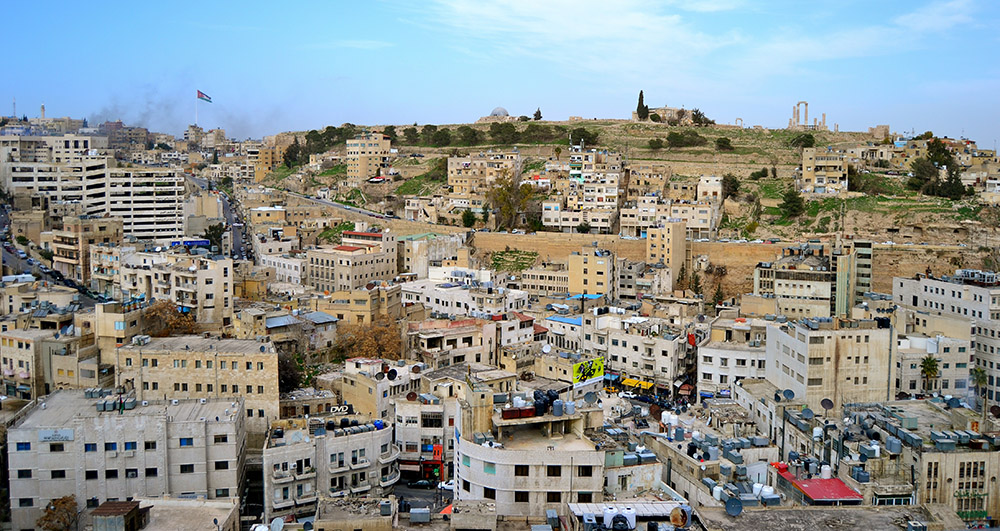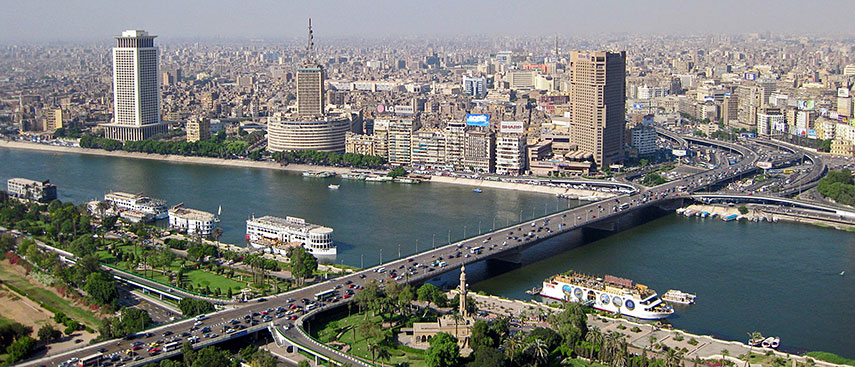Guide to Middle East Import Laws and Taxes
In this article we will briefly go over the import laws of ten Middle Eastern countries – including prohibited items, required documentation, and ease of importation – as well as the relative tariffs. The countries are organized in order from easiest to most difficult import requirements. Use this guide as a starting point for your research on Middle East Import Laws.
Bahrain Import Laws
Bahrain requires a number of supporting documents to the Customs declaration for imports – including invoices, delivery orders, certificates of origin, copies of the insurance policy, bills of lading, import permits, and bank guarantees. In addition, companies will need to obtain official Commercial Registration from Bahrain before importing into the country. This registration is renewed every year. Unlike many other Middle Eastern countries, importing businesses in Bahrain may be 100% foreign-owned. For this, for its low corporate taxes, and for its policies that avoid double taxation, Bahrain has been noted as a relatively easy place for foreigners to do business – ranked in the 2015 Index of Economic Freedom as having the freest economy within the Middle East. However, Bahrain is also known for issues within government agencies in terms of efficiency and receiving licenses. Though the time required to receive and process these documents is slightly higher than that of the U.A.E., the process does generally cost less to complete. In addition, Bahrain has been making reforms that streamline these procedures and increase the ease of trading across borders.
Bahrain’s list of prohibited imports contains mostly goods that are deemed inappropriate for the culture and religion (e.g. pornography, cigarettes, drugs), items imported from Israel, and illegal goods such as weapons and counterfeit money. All arms, food products, and broadcasting equipment require special no objections certificates before entering the country.
The duty levied on imports is typically 5% the value of the cost freight insurance – with the exceptions of paper and aluminum products (20%), alcohol (125%), and cigarettes (100%). All goods originating in Arab countries are exempted from the typical customs taxes, with the exceptions of alcohol and tobacco products.
The rank of Bahrain at the top of this list is mainly due to the ease of importing into the country as a foreign business. Although there have been reported issues with government efficiency in terms of handling documentation, overall Bahrain has one of the lowest time and cost requirements for import in the Middle East. The free economy, easy access for foreign businesses, and low tariffs make Bahrain an ideal place to do business.
Dubai & UAE Import Laws
The U.A.E. ranks near the top of this list due to the low tariff rates levied on imports and the relatively high ease of doing business across borders. The United Arab Emirates is a country that prides itself on the diversification of its economy and its wide range of imported and exported goods. The procedures to import into the U.A.E. are generally simple and streamlined. To import into the UAE, businesses must have valid UAE trade licenses and a standing registration with the UAE Customs department. Importers must apply for a Customs clearance and pay for cargo formalities through dubaitrade.uae and supply a commercial invoice, certificate of origin, packing list, and import permit. All import documents from an American company must be certified by the U.A.E. embassy in Washington D.C.
The UAE has agreements in place with most trading partners that keep imports from undergoing double taxation from different jurisdictions. As of 2013, 64% of the UAE’s foreign trade value consisted of imports – the majority of which was precious metals and machinery. Prohibited imports include drugs, ivory, printed materials that don’t conform with societal and religious values, and goods originating in Israel. The UAE applies the typical GCC tariff of 5% on almost all goods imported into the country. Two exceptions are alcohol, with a tariff rate of 50%, and tobacco at 100%.
The Ease of Doing Business report 2017 shows that the U.A.E. has very low time and cost to import rates compared to the rest of the Middle East. For the range of imports, strong economy, streamlined process, and low tariffs, we have ranked the U.A.E. as one of the easiest countries in which to import.
Oman Import Laws
For all imported goods, the Sultanate of Oman requires a commercial invoice, a certificate of origin, a packing list, and an import declaration. This low amount of necessary documentation contributes to the very low time and cost averages to import into the country. Recent reforms have reduced these averages even further by introducing easy, one-stop electronic services for clearance of goods. Correct labels either in Arabic or in both Arabic and English are required for imported goods. Prohibited goods include weapons, alcohol, pornography, and products originating from Israel as well as any other items that might be deemed as offensive to the Omani government or to Islam.
Due to its status as a member of the GCC and its free trade agreements with the United States, Oman has duty-free trade with a majority of Arab states and few tariffs for American agricultural products. Oman hopes to completely phase out tariffs with the United States within the next few years. These factors make Oman an increasingly attractive option as a trading and business option, especially with its relatively free economy and the ease of starting a business in the country.
Jordan Import Laws
Through recent changes to import laws, Jordan has attempted to expand the trade sector and make it easier for foreign countries to bring goods to the country. These new conditions for importing goods include fewer custom tariff duties, simplified and expedited customs procedures, and exemption of equipment and raw materials from customs taxes. Prohibited imported goods for Jordan include foreign goods with labels that imply local production and those that violate intellectual property laws. Other goods are restricted, such as raw leather, cement, explosives, medical drugs, and military goods. For these restricted goods, a pre-import clearance is required.
For U.S. based companies, it is less expensive to export goods into Jordan because of the 2010 U.S.-Jordan Free Trade Agreement that eliminated a large number of import taxes and tariffs on commerce between the two countries. As of 2013, 12 “luxury commodities” including items such as cell phones, cosmetics, antiques, and gemstones were given special import taxes between 5 and 25%. For other countries, the custom duty rates range up to around 30%.
Jordan earned its high placement on this list for its incredibly low time and cost to procure the documents necessary to import. Recent reforms and lower requirements make it very easy to import into Jordan. The elimination and reduction of tariff duties along with this ease of trading across borders make Jordan a very attractive import option.
Kuwait Import Laws
Kuwait prohibits all imports deemed harmful to the country’s politics or to Islam, such as alcohol, pork, and drugs. In addition, Kuwait has banned all products originating in Israel. Although it follows agreements with the United States that allows certain personnel the ability to import supplies and military equipment, it also reserves the right to re-export these items without licenses or taxes. To import into Kuwait, the business must have an import license – which is renewable each year and allows for multiple shipments. Documentation requires to import into the country includes a commercial invoice, a certificate of origin, a packing list, and a bill of lading. The average time and cost to import into Kuwait is high in terms of preparing and processing documents – much higher than that of the Middle East overall.
Kuwait allows the duty-free import of goods originating in other countries within the GCC. Kuwaiti import tariffs follow the Single Customs Tariff set into place in 2003. Under this law, most goods are charged a 5% import duty. Food and medicine are generally duty-free, while tobacco is taxed at 100%.
Although tariffs in Kuwait are low, following the GCC customs tariffs, the relatively high time and dollar cost to import make Kuwait a less attractive business option. Although Kuwait has recently begun to streamline the importation process by introducing a more electronic form of communication among customs departments, the administrative process still requires reform to be more efficient.
Download the complete guide to import taxes for the top 10 countries in MENA
Qatar Import Laws
All goods imported into Qatar are required to have import licenses, which are available to Qatari nationals and businesses. Foreign businesses in Qatar must have a Qatari national partner and be registered with the Ministry of Economy and Commerce. Meats imported into Qatar require an additional health certificate and a halal slaughter certificate to be allowed into the country. The cost of obtaining the documents necessary to import into Qatar is one of the highest in the Middle East, and it takes an average of 88 hours to successfully prepare and submit documents during border handling and customs clearance.
Qatar is a member of the GCC Free Trade Agreement and follows its unified customs tariff. Along with the other countries in the GCC, Qatar holds a 5% customs duty on all goods imported into the country with the exceptions of tobacco and alcohol – which are taxed at 100% the customs value.
Despite the low tariffs, the time and cost necessary to import into Qatar suggest bureaucratic inefficiency. Qatar’s low ranks in enforcing contracts and resolving issues, according to the Doing Business 2017 report, also contribute to the difficulty of importing into the country.
Saudi Arabia Import Laws
Saudi Arabia prohibits the import of a large number of goods into this country. The list of banned goods consists primarily of items seen to be incompatible with Islam (e.g. pornography, alcohol, pork, Jewish and Christian religious symbols, gambling equipment), hazardous materials, and gems. If a prohibited good arrives in Saudi Arabia, it is immediately destroyed by authorities at the border. Saudi Arabia also requires special documentation and clearance for restricted goods, which include a wide range of items such as books, cosmetics, and computer games. All imported goods require Certificates of Conformity through service providers such as Intertek (which provides these certificates for exporters in France, Italy, Spain, and North America). These goods must have permanent markers that show country of origin as well as a label in Arabic. It takes an estimated 131 hours to prepare and process the necessary documents before reaching the border and going through customs clearance.
Import taxes and duties for Saudi Arabia are generally low. Many basic consumer items (rice, tea, livestock, etc.) are duty free with other items taxed at 12% ad valorem on the cost, insurance, and freight value of the goods. Imports from Arab states are given reductions on duty. Customs tariffs on the majority of imported goods is at 5%, except in the cases of protective tariffs that support national industry.
Saudi Arabia obtained a low rank on this list due to the narrow range of imports allowed into the country, the high cost and time to process documents at the border, and the many requirements and conditions to import.
Lebanon Import Laws
Prohibited imports into Lebanon include products that bear false origin labels, violate health measures, threaten local industry (e.g. black cement and cedar seeds), or are manufactured in Israel. These goods are seized upon arrival in Lebanon, along with imported goods not accompanied by the correct documentation and licensing. By allowing for single customs declarations on imported goods and allowing direct delivery of imports, Lebanon has attempted to streamline and simplify the process of importing into the country. However, the time and cost averages to import into Lebanon are still relatively high compared to other countries in the Middle East.
Customs duties on goods imported into Lebanon are calculated under one “single customs duty”, which follows either a 15% proportion value or based on a qualitative value (calculated by using a specific amount for each quantity unit). In the case that the custom duty could be calculated in both ways, the authorities will demand the higher value duty. Due to these tariffs, the high time and cost to import, and Lebanon’s low rank for resolving insolvency, Lebanon has received a low placement on this list.
Iraq Import Laws
Unless a U.S. business is operating solely in Iraq, it is required to register with the Ministry of Trade in order to be able to import into the country. All imports must be pre-inspected by Iraqi officials, and documentation must be authenticated by U.S. officials and the Iraqi Embassy before export. The time and cost to import into Iraq is one of the highest in the Middle East. Due to these bureaucratic and processing hurdles, most companies import into Iraq through the Iraqi Kurdistan region. Iraq prohibits the import of religious artifacts, Israeli currency, deadly weapons, and pornography.
As of March 2011, Iraq switched from a uniform tariff rate of 5% to a custom tariff system that taxes imports on a range of 0-80%. This marks an enormous increase in tariffs designed to boost government revenue. However, the Kurdistani region of the country still exacts the 5% uniform tariff. Importing into the IKR is generally a much shorter process with lower costs and tariff rates.
Due to the high bureaucratic and administrative hurdles to processing documents and clearing customs for importation, as well as the recent reforms that increase tariff rates, Iraq is low on this list for low ease of trading across borders.
Egypt Import Laws
In the past year, Egypt has added barriers to importation in an attempt to spur economic growth within the country. These new measures stipulate that foreign factories that export goods to Egypt must be properly registered – making the process more complicated and restricted than in recent years. They were justified as an attempt to halt what the central bank governor has deemed “unnecessary imports”. Imports are subject to investigation, and companies can be prohibited from shipping goods for 6 months if the data in the registration and shipping documents is incorrect. Egypt at the same time increased the customs duties of many imported items by 5-10% and imposed a cap on foreign exchange transactions for imports.
Licenses required for importing goods into Egypt are generally granted only to Egyptian nationals and companies in which all shareholders are Egyptian nationals. These stipulations make it very difficult for foreign companies to import into Egypt. Even for those companies that can import into Egypt, however, the 2016 laws have hit hard. Customs were increased on household items and appliances by 30-40%. The head of the customs authority in Egypt expected the new tariff measures to increase Egypt’s customs revenue greatly, but also to discourage foreign imports. For the extremely high cost to import and submit documents and the many restrictions on importation, Egypt has received the lowest ranking on this list.











